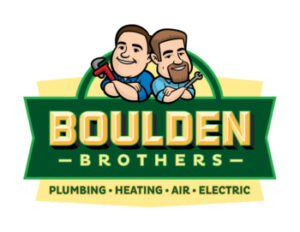Is Your AC System Running But Not Cooling? Here’s Why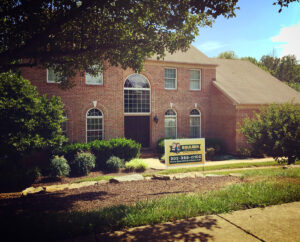
Hey there! Has this happened to you? You walk into your home on a scorching summer day, flip on the AC, and… nothing really happens? The system’s running you can hear it humming away—but your house still feels like a sauna. Talk about frustrating!
At Boulden Brothers, we see this problem all the time, especially during those brutal summer heat waves when your AC system decides to go on strike. I wanted to share some insights on why this happens and what you can do about it.
Why Your AC Might Be Giving You the Cold Shoulder
Let’s break down the most common culprits behind an AC system that’s running but not cooling. Some of these you might be able to fix yourself, while others will need a professional’s touch.
That Poor, Neglected Air Filter
You know that thin, cardboard-framed filter that’s supposed to be changed regularly? Yeah, that one. It’s amazing how often this simple maintenance task gets overlooked, but a clogged filter is actually the #1 reason ACs stop cooling effectively.
Think of it like trying to breathe through a pillow if your system can’t pull in enough air because the filter is caked with dust, pet hair, and who-knows-what-else, it can’t possibly cool your home properly. The good news? This is super easy to fix. Swap in a fresh filter, and you might see improvement right away.
Your Vents Might Be Playing Hide and Seek
Have you rearranged your furniture lately? It sounds silly, but I can’t tell you how many service calls I’ve been on where the problem was simply a sofa blocking a vent or curtains hanging over a return. Take a walk through your home and make sure all your vents are open and unobstructed.
Also worth checking are some rooms cooler than others? This could mean certain vents are closed or blocked, creating uneven cooling throughout your home.
Your AC System Might Be Running on Empty
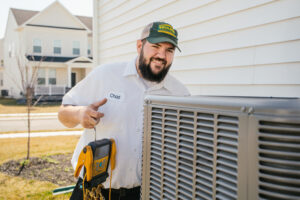
Your air conditioner uses refrigerant to absorb heat from inside your home and release it outside. It’s not like gas in a car—refrigerant doesn’t get “used up” during normal operation. So if your system is low on refrigerant, it means you have a leak somewhere.
Signs of low refrigerant include:
- Your AC system runs constantly but never gets cold enough
- You hear a hissing or bubbling sound
- The copper lines outside look frosty or have ice buildup
This is definitely a problem for the pros refrigerant requires special handling and certification to work with.
Your Thermostat Might Be Confused
Sometimes the issue isn’t with your AC system at all it’s with the device telling it what to do. Thermostats can get miscalibrated over time, have wiring issues, or even battery problems that affect how your system operates.
Try this quick test: tape a regular thermometer to the wall next to your thermostat and compare readings. If there’s more than a 2-degree difference, your thermostat might need calibration or replacement.
Your Evaporator Coil Might Be Frozen Solid
This is a tricky one because it’s both a symptom and a cause of cooling problems. When your evaporator coil freezes up (and yes, it can literally become a block of ice), your AC can’t transfer heat properly.
Several things can cause a frozen coil:
- Poor airflow (often from that dirty filter we talked about)
- Low refrigerant levels
- Running the AC system when it’s too cold outside
- A mechanical problem with the blower fan
If you suspect a frozen coil, turn off your AC completely and let it thaw for several hours before running it again. Then check your filter and airflow to prevent it from happening again.
Your Ductwork Might Be Leaking Your Money Away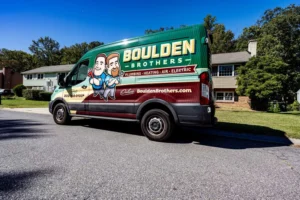
Your ducts are the highway system that delivers cool air throughout your home. If that highway has cracks and potholes (leaks and poor insulation), a lot of the cool air you’re paying for never makes it to its destination.
In fact, the Department of Energy estimates that the average home loses 20-30% of conditioned air through duct leaks! That’s literally money disappearing into your attic, crawlspace, or walls.
Your AC System Might Be Past Its Prime (or Too Small)
Nothing lasts forever, and air conditioners are no exception. If your system is pushing 10-15 years old, it might simply be wearing out. Efficiency declines naturally over time, and older systems weren’t that efficient to begin with compared to today’s models.
Another possibility? Your system might be undersized for your home, especially if you’ve added on rooms or finished a basement since the original installation. An AC system that’s too small will run constantly without ever getting your home comfortable.
Your Outdoor Unit Might Be Suffocating
Your air conditioner works by transferring heat from inside your home to outside. That outdoor unitt he one with the big fan on top needs adequate airflow to release that heat. If it’s choked with leaves, grass clippings, or overgrown landscaping, it can’t do its job effectively.
Take a look at your outdoor unit. It should have at least 2 feet of clear space on all sides and no obstructions above it. A quick cleanup might make a big difference in performance.
Electrical Components Might Be Failing
Your AC system has several critical electrical parts that can wear out over time:
- The capacitor (which helps motors start and run)
- The contactor (which controls when electricity flows to various components)
- The compressor (the heart of your cooling system)
If any of these components starts to fail, your AC might run but not cool properly, make strange noises, or shut off unexpectedly.
When to Wave the White Flag and Call for Help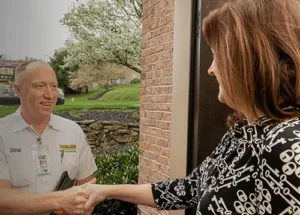
While some cooling issues are DIY-friendly, others require professional expertise.
Here’s when you should definitely give us a call:
- Your AC system runs constantly but temperatures never drop
- You notice weak airflow from multiple vents
- Your system turns on and off rapidly (short-cycling)
- You hear unusual noises—buzzing, grinding, hissing, or banging
- You see ice forming on any part of your system
- Your energy bills are climbing without explanation
- You’ve tried the simple fixes, and nothing’s working
Remember our commitment: You call. We come. It’s fixed. No run-arounds, no temporary band-aids—just solutions that last.
Our Step-by-Step Approach to Fixing Your Cooling Crisis
When you call Boulden Brothers about an AC system that’s not cooling, here’s what we’ll do:
We Start with the Basics
First, we’ll check the simple stuff filters, vents, and thermostat settings to rule out easy fixes before diving deeper.
We’ll Check Your Refrigerant Situation
Using specialized equipment, we’ll test refrigerant levels and look for leaks that might be robbing your system of cooling power.
We’ll Inspect Your Coils
Both the indoor evaporator coil and outdoor condenser coil need to be clean and frost-free for proper heat transfer. We’ll inspect and clean as needed.
We’ll Test All Moving Parts
Your blower motor, fan blades, and other mechanical components need to be in good working order for proper airflow.
We’ll Look for Duct Issues
If we suspect air is escaping before reaching your living spaces, we’ll inspect your ductwork for leaks, disconnections, or insulation problems.
We’ll Verify Electrical Components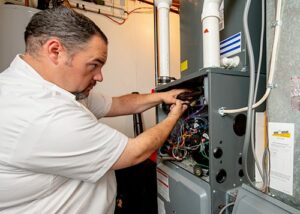
Using diagnostic tools, we’ll test capacitors, contactors, and other electrical parts for proper operation.
We’ll Assess Your System as a Whole
Sometimes the most cost-effective solution is upgrading to a newer, properly-sized system. If that’s the case, we’ll give you honest recommendations without any pressure.
We’ll Make Sure It’s Fixed Right
Once repairs are complete, we’ll run a full system test to verify that your home is cooling properly before we leave.
Your Quick-Reference FAQ Section
How often should I really change my air filter?
For most homes, every 1-3 months is ideal. If you have pets or allergies, lean toward the more frequent end of that range.
Can I just add more refrigerant myself?
Definitely not. Refrigerant handling requires EPA certification, and if your system is low, there’s almost certainly a leak that needs fixing first.
Why does my AC System freeze up in summer when it’s hot outside?
Counterintuitive, right? Freezing usually means restricted airflow or refrigerant issues, not outdoor temperatures. Running your AC system while it’s frozen can seriously damage your compressor.
How do I know if my AC System is the right size for my home?
Proper sizing requires a detailed load calculation that considers square footage, insulation levels, window placement, and more. If your AC runs constantly on hot days or short-cycles frequently, improper sizing could be the culprit.
Don’t spend another uncomfortable day with an AC system that’s not performing. At Boulden Brothers, we’re committed to restoring your comfort quickly and efficiently. Give us a call, and experience the difference our expertise makes!
